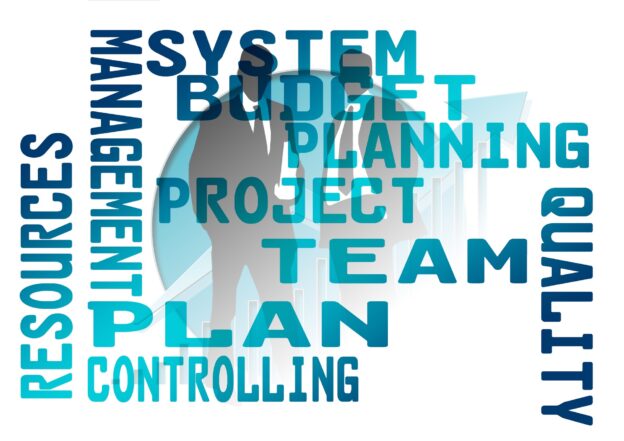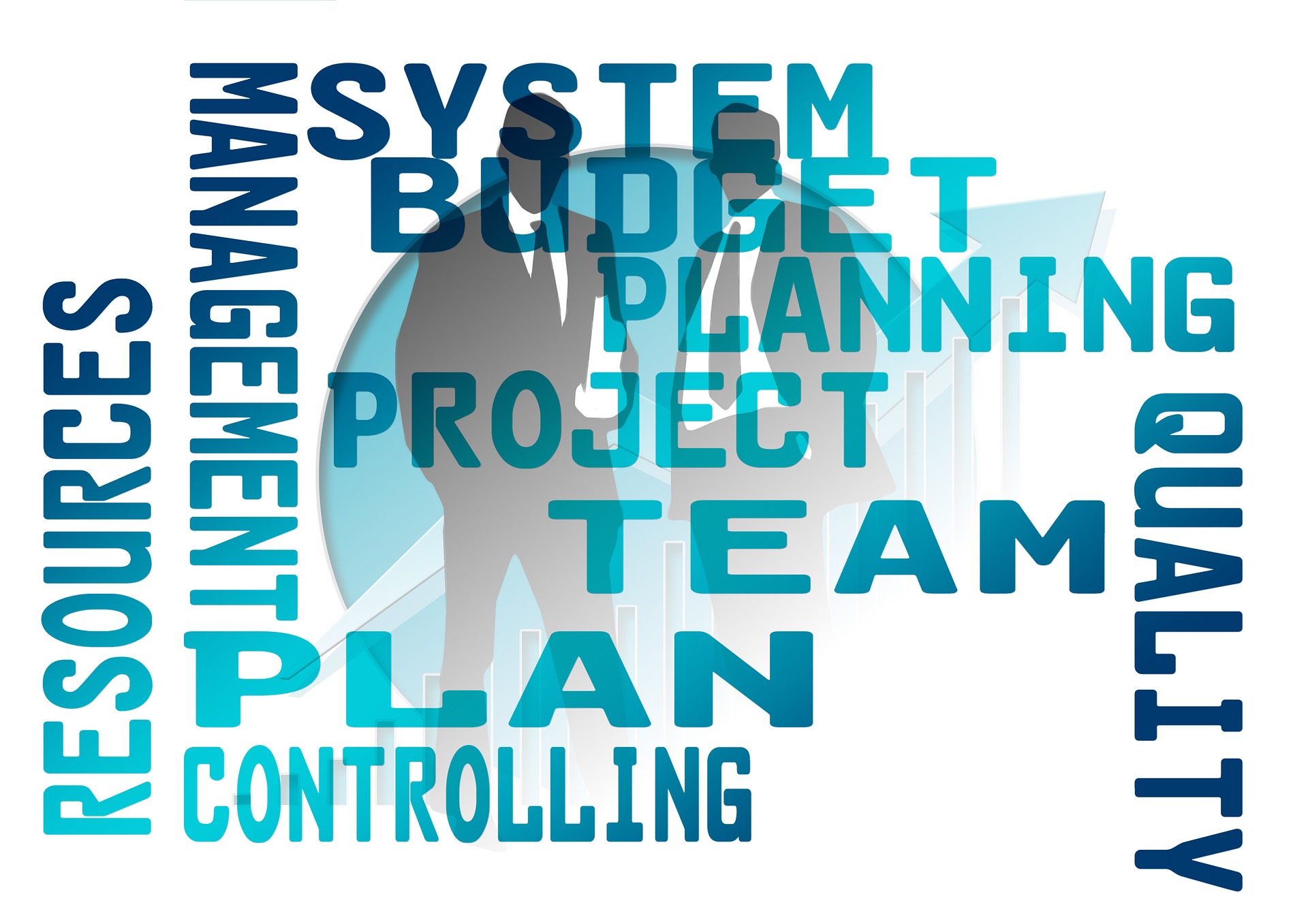-
Franchise Lawyer
- Introduction
- Investigating the Role of Franchise Disclosure Documents in Modern Franchising Practice
- Assessing the Benefits of the Franchise Business Model for Small Business Management
- Analyzing the Impact of International Franchising on Foreign Markets
- Examining the Role of Intellectual Property in Modern Franchising Practice
- Exploring the Impact of Modern Franchising Practice on the Franchisee-Franchisor Relationship
- Why You Need A Franchise Lawyer to Help You
- Q&A
“Grow Your Business with Modern Franchising Practices – Unlock Your Potential!”
Introduction
Modern franchising practice is a business model that has been around for centuries, but has seen a resurgence in recent years. It is a form of business ownership in which a franchisor grants a franchisee the right to use their business name, logo, and other proprietary information in exchange for a fee and a percentage of the franchisee’s sales. Franchising is a great way for entrepreneurs to get into business without having to start from scratch. It allows them to leverage the brand recognition and resources of an established business, while still having the freedom to run their own business. Franchising also provides a great opportunity for franchisors to expand their business and reach new markets. With the right franchise agreement, franchisors can benefit from the success of their franchisees while still maintaining control over their brand.
Investigating the Role of Franchise Disclosure Documents in Modern Franchising Practice
Franchise disclosure documents (FDDs) are an essential part of modern franchising practice. They provide potential franchisees with important information about the franchise system, the franchisor, and the franchise agreement. FDDs are required by law in the United States and many other countries, and they are designed to protect potential franchisees from fraud and other unethical practices.
FDDs provide potential franchisees with a wealth of information about the franchise system, including the franchisor’s background, the franchise agreement, the fees and costs associated with the franchise, and the franchisor’s financial performance. The FDD also includes a list of all the franchisees in the system, as well as a description of the franchisor’s obligations to the franchisees. This information is essential for potential franchisees to make an informed decision about whether or not to invest in a franchise.
FDDs also provide potential franchisees with important legal protections. The FDD must include a disclosure of all material facts about the franchise system, including any litigation or bankruptcy proceedings involving the franchisor. This information is essential for potential franchisees to make an informed decision about whether or not to invest in a franchise.
In addition to providing potential franchisees with important information and legal protections, FDDs also provide franchisors with important benefits. FDDs help franchisors to ensure that all franchisees are aware of the terms and conditions of the franchise agreement, and that they understand their rights and obligations under the agreement. This helps to ensure that all franchisees are operating in compliance with the franchise agreement, and that the franchisor is not exposed to any legal liability.
In conclusion, FDDs are an essential part of modern franchising practice. They provide potential franchisees with important information about the franchise system, the franchisor, and the franchise agreement, as well as important legal protections. They also provide franchisors with important benefits, such as ensuring that all franchisees are aware of the terms and conditions of the franchise agreement. For these reasons, FDDs play an important role in modern franchising practice.
Assessing the Benefits of the Franchise Business Model for Small Business Management
The franchise business model has become increasingly popular among small business owners in recent years. This model offers a number of advantages that can help small business owners manage their operations more effectively. By understanding the benefits of the franchise business model, small business owners can make an informed decision about whether or not it is the right choice for their business.
One of the primary benefits of the franchise business model is the ability to leverage the brand recognition of an established company. By becoming a franchisee, small business owners can benefit from the existing customer base and reputation of the franchisor. This can help to attract new customers and increase sales. Additionally, the franchisor typically provides marketing and advertising support to franchisees, which can help to further increase brand recognition and sales.
Another benefit of the franchise business model is the ability to access resources and expertise that may not be available to small business owners. Franchisors typically provide franchisees with access to training and support, which can help them to better manage their operations. Additionally, franchisors often provide access to specialized equipment and technology that can help to streamline operations and reduce costs.
Finally, the franchise business model can provide small business owners with a greater sense of security. Franchisors typically provide franchisees with a comprehensive set of rules and regulations that must be followed. This can help to ensure that franchisees are operating in compliance with local, state, and federal laws. Additionally, franchisors often provide legal and financial support to franchisees, which can help to protect their investments.
In conclusion, the franchise business model offers a number of advantages that can help small business owners manage their operations more effectively. By leveraging the brand recognition of an established company, accessing resources and expertise, and gaining a greater sense of security, small business owners can benefit from the franchise business model.
Analyzing the Impact of International Franchising on Foreign Markets
International franchising has become an increasingly popular business model for companies looking to expand their operations into foreign markets. This type of business model allows companies to leverage the existing brand recognition and customer base of a franchisor in order to quickly establish a presence in a new market. While international franchising can be a powerful tool for companies looking to expand their operations, it is important to understand the potential impacts that this type of business model can have on foreign markets.
One of the primary benefits of international franchising is that it allows companies to quickly establish a presence in a new market. By leveraging the existing brand recognition and customer base of a franchisor, companies can quickly gain access to a new market without having to invest in costly marketing campaigns or build a new infrastructure from scratch. This can be especially beneficial for companies looking to enter markets with high barriers to entry, such as those with strict regulations or high levels of competition.
However, international franchising can also have a negative impact on foreign markets. For example, the presence of a large international franchise can lead to the displacement of local businesses, as customers may be more likely to patronize the larger, more recognizable brand. Additionally, the presence of an international franchise can lead to a decrease in wages for local workers, as the franchisor may be able to pay lower wages than local businesses due to their larger scale of operations.
Finally, international franchising can lead to a decrease in cultural diversity in foreign markets. As international franchises tend to have a standardized approach to operations, they can lead to a homogenization of products and services in a given market. This can lead to a decrease in the variety of products and services available to customers, as well as a decrease in the diversity of cultural experiences available in the market.
Overall, international franchising can be a powerful tool for companies looking to expand their operations into foreign markets. However, it is important to understand the potential impacts that this type of business model can have on foreign markets. By taking these potential impacts into consideration, companies can ensure that their international franchising efforts are beneficial to both their own operations and the foreign markets in which they operate.
Examining the Role of Intellectual Property in Modern Franchising Practice
Intellectual property (IP) plays an important role in modern franchising practice. IP is a valuable asset for franchisors, as it helps to protect their brand and products from competitors. It also helps to ensure that franchisees are able to use the franchisor’s brand and products in a consistent manner.
Franchisors typically own the IP associated with their brand and products. This includes trademarks, copyrights, patents, and trade secrets. Trademarks are used to identify the source of goods or services, and can include words, symbols, or designs. Copyrights protect original works of authorship, such as books, music, and artwork. Patents protect inventions, such as machines, processes, and chemical compositions. Trade secrets are confidential information that provides a business with a competitive advantage.
Franchisors use IP to protect their brand and products from competitors. This helps to ensure that franchisees are able to use the franchisor’s brand and products in a consistent manner. Franchisors also use IP to prevent franchisees from using the franchisor’s brand and products in a manner that is not authorized by the franchisor.
Franchisees must also be aware of IP laws. They must ensure that they do not infringe on the IP of the franchisor or other third parties. Franchisees must also be aware of the IP laws in their jurisdiction, as these laws may differ from those of the franchisor.
In conclusion, IP plays an important role in modern franchising practice. Franchisors use IP to protect their brand and products from competitors, while franchisees must be aware of IP laws to ensure that they do not infringe on the IP of the franchisor or other third parties.
Exploring the Impact of Modern Franchising Practice on the Franchisee-Franchisor Relationship
The franchisee-franchisor relationship is a critical component of the modern franchising system. As the franchising industry has grown and evolved, so too have the practices and strategies used to manage this relationship. This article will explore the impact of modern franchising practices on the franchisee-franchisor relationship.
One of the most significant changes in modern franchising practices is the increased emphasis on communication and collaboration. Franchisors are now more likely to engage in regular dialogue with franchisees, allowing them to better understand their needs and concerns. This open communication helps to foster a more trusting and collaborative relationship between the two parties.
Another important change in modern franchising practices is the increased focus on training and support. Franchisors are now more likely to provide comprehensive training and support to franchisees, helping them to better understand the franchising system and how to maximize their success. This increased focus on training and support helps to ensure that franchisees are better equipped to succeed in their business.
Finally, modern franchising practices have also seen an increased emphasis on technology. Franchisors are now more likely to use technology to streamline operations and improve efficiency. This technology can help to reduce costs and improve the overall efficiency of the franchising system.
In conclusion, modern franchising practices have had a significant impact on the franchisee-franchisor relationship. By emphasizing communication, training, and technology, franchisors are now better able to understand the needs of their franchisees and provide them with the support they need to succeed. This improved relationship helps to ensure that the franchising system is more successful and profitable for both parties.
Why You Need A Franchise Lawyer to Help You
When considering a franchise opportunity, it is important to understand the legal implications of the agreement. A franchise lawyer can help you navigate the complexities of the franchise agreement and ensure that your rights and interests are protected.
A franchise lawyer can provide valuable advice on the terms of the franchise agreement, including the franchise fee, royalty payments, and other financial obligations. They can also help you understand the legal implications of the agreement, such as the franchisor’s right to terminate the agreement and the franchisor’s obligations to provide support and training.
A franchise lawyer can also help you understand the disclosure requirements of the franchise agreement. The franchisor must provide a disclosure document that outlines the terms of the agreement, including the franchise fee, royalty payments, and other financial obligations. A franchise lawyer can help you understand the disclosure document and ensure that you are aware of all the terms of the agreement.
A franchise lawyer can also help you understand the legal implications of the franchise agreement. They can advise you on the rights and obligations of both the franchisor and the franchisee, as well as the remedies available to you if the franchisor fails to meet their obligations.
Finally, a franchise lawyer can help you understand the laws and regulations that govern the franchise industry. They can provide advice on the registration process, the requirements for disclosure documents, and the laws governing the sale of franchises.
A franchise lawyer can provide invaluable advice and assistance when considering a franchise opportunity. They can help you understand the legal implications of the agreement and ensure that your rights and interests are protected.
Q&A
Q1: What is franchising?
A1: Franchising is a business model in which a franchisor grants a franchisee the right to use its business name, logo, and other intellectual property in exchange for a fee and a percentage of the franchisee’s sales. The franchisee is then responsible for operating the business according to the franchisor’s guidelines.
Q2: What are the benefits of franchising?
A2: Franchising offers a number of benefits to both the franchisor and the franchisee. For the franchisor, it provides a way to expand their business quickly and efficiently, while for the franchisee, it provides an opportunity to own and operate their own business with the support of an established brand.
Q3: What are the risks associated with franchising?
A3: As with any business venture, there are risks associated with franchising. These include the risk of not being able to find suitable franchisees, the risk of not being able to maintain quality control over franchisees, and the risk of not being able to protect the franchisor’s intellectual property.
Q4: What are the legal requirements for franchising?
A4: The legal requirements for franchising vary from country to country, but generally include the registration of the franchise agreement with the relevant government authority, the disclosure of certain information to potential franchisees, and the protection of the franchisor’s intellectual property.
Q5: What are the costs associated with franchising?
A5: The costs associated with franchising include the initial franchise fee, ongoing royalties, and other costs such as marketing and advertising.
Q6: What are the best practices for successful franchising?
A6: The best practices for successful franchising include selecting the right franchisees, providing comprehensive training and support, and maintaining quality control over franchisees. Additionally, it is important to have a clear and consistent brand identity, as well as a well-defined business plan.
Areas We Serve
We serve individuals for franchise law in the following locations:
Salt Lake City Utah
West Valley City Utah
Provo Utah
West Jordan Utah
Orem Utah
Sandy Utah
Ogden Utah
St. George Utah
Layton Utah
South Jordan Utah
Lehi Utah
Millcreek Utah
Taylorsville Utah
Logan Utah
Murray Utah
Draper Utah
Bountiful Utah
Riverton Utah
Herriman Utah
Spanish Fork Utah
Roy Utah
Pleasant Grove Utah
Kearns Utah
Tooele Utah
Cottonwood Heights Utah
Midvale Utah
Springville Utah
Eagle Mountain Utah
Cedar City Utah
Kaysville Utah
Clearfield Utah
Holladay Utah
American Fork Utah
Syracuse Utah
Saratoga Springs Utah
Magna Utah
Washington Utah
South Salt Lake Utah
Farmington Utah
Clinton Utah
North Salt Lake Utah
Payson Utah
North Ogden Utah
Brigham City Utah
Highland Utah
Centerville Utah
Hurricane Utah
South Ogden Utah
Heber Utah
West Haven Utah
Bluffdale Utah
Santaquin Utah
Smithfield Utah
Woods Cross Utah
Grantsville Utah
Lindon Utah
North Logan Utah
West Point Utah
Vernal Utah
Alpine Utah
Cedar Hills Utah
Pleasant View Utah
Mapleton Utah
Stansbury Par Utah
Washington Terrace Utah
Riverdale Utah
Hooper Utah
Tremonton Utah
Ivins Utah
Park City Utah
Price Utah
Hyrum Utah
Summit Park Utah
Salem Utah
Richfield Utah
Santa Clara Utah
Providence Utah
South Weber Utah
Vineyard Utah
Ephraim Utah
Roosevelt Utah
Farr West Utah
Plain City Utah
Nibley Utah
Enoch Utah
Harrisville Utah
Snyderville Utah
Fruit Heights Utah
Nephi Utah
White City Utah
West Bountiful Utah
Sunset Utah
Moab Utah
Midway Utah
Perry Utah
Kanab Utah
Hyde Park Utah
Silver Summit Utah
La Verkin Utah
Morgan Utah
Modern Franchising Practice Consultation
When you need help with Modern Franchising Practice call Jeremy D. Eveland, MBA, JD (801) 613-1472 for a consultation.
Jeremy Eveland
17 North State Street
Lindon UT 84042
(801) 613-1472
Related Posts
Corporate Attorney Riverton Utah
Advantages of Hiring a Utah Personal Injury Lawyer
Estate Planning Lawyer Provo Utah
Business Lawyer West Valley City Utah
Business Succession Lawyer Eagle Mountain Utah
Estate Planning Lawyer West Jordan Utah
Business Acquisition Lawyer Sandy Utah











